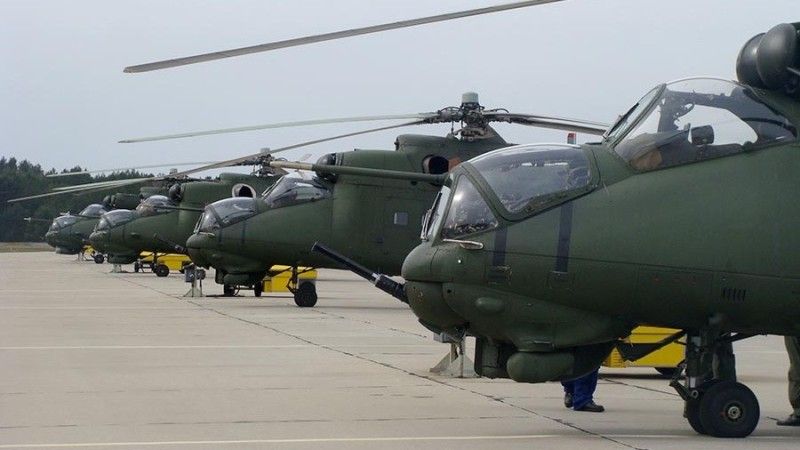Territorial Defence Forces
Polish Ministry of Defence Changes Its Priorities: “Attack Helicopters Shall Be More Important”

“We are reversing the proportion of helicopter procurements. We think that attack helicopters would be more important now” – as it was stated by Tomasz Szatkowski, Deputy Minister of Defence, within the context of the conclusions reached, following the Strategic Defence Review. It was assumed that lack of options to act against the armoured threat in case of the currently operated Mi-24 helicopters, constitutes a key problem, due to the meaning these gunships have, as an anti-tank asset of the Army. Meanwhile, as Szatkowski suggested, multi-role helicopters are a costly and ineffective tool for transporting the light forces.
Deputy Minister Szatkowski, in his statement made for the Polish Press Agency, referred to the prioritization of the urgent helicopter acquisitions. Szatkowski considered the meaning of the currently implemented naval and special forces helicopter acquisition programmes to bear high relevance, however he expressed his doubts, referring to the potential economic and systemic justification, when it comes to acquisition of a high number of multi-role helicopters.
According to the Polish official, deploying a light infantry battalion with the use of helicopters, in conditions in which achieving air superiority would be impossible, is an unrealistic and non-economical scenario, due to the high cost of helicopters, in relation to the combat abilities that remain at hand of the units deployed. Tomasz Szatkowski, on the other hand, noted that instead of the mobile airborne units, the Defence Review places a greater emphasis on saturating the operational area with formations supported by the units of the Territorial Defence branch.
At the same time, the Deputy Minister also emphasized the fact that the above would not translate into liquidation of the air-mobile units, they would rather be transformed and integrated, so that their capabilities would be tailored to the conditions applicable to the contemporary battlefield. Their role, in the structure of the Armed Forces, would be to act as a special reserve and as an expeditionary unit.
The above is going to constitute an element of a wider strategy, assuming that operational activities would be taking place in an area-denial environment, with a high degree of exposure to saturation with anti-aircraft systems and other units rendering the movement of the forces impossible. Thus the Polish Ministry of Defence is going to limit its involvement in expansion of the strategic deployment systems and multi-role helicopters, placing an emphasis on other solutions.
The statement made by the Deputy Minister of Defence also suggests that major changes would happen, in relation to the plans concerning the procurement of multi-role/transport helicopters which, taking into account the Russian area-denial strategy, have been considered to lack effectiveness in a scenario of a real conflict. The above may also point to a plan, the goal of which would be to limit the investment in the air-mobile units, with subsequent allocation of funds to the forces which are considered to be more promising for the Polish Ministry of Defence. At the same time, plans contained within the Technical Modernization Plan were criticized, it was suggested that they are based on data which had no foundation in the reality. Nonetheless, the above stands in an opposition to the experiences gathered, when the Ukrainian helicopters were being used in Donbas, as well as to the real entries contained in the Technical Modernization Plan pursued by the Polish MoD.
Notably, among the 50 multi-role helicopters planned to be acquired, only 16 were to be used for general transport purposes, with the remaining being expected to be procured in specialist varieties, e.g. as a MEDEVAC platform. Meanwhile, the number of helicopters would be less than sufficient to meet the needs of the air-mobile units, assuming that at least some of the Mi-17 platforms would still be operated as a heavy transport helicopter.
Moreover, it is hard to imagine modern warfare without MEDEVAC helicopters that would be tasked with transporting the wounded troops. Thus, the decision to place the multi-role helicopters further down the list of the priorities should not lead towards a complete resignation from acquiring platforms of this kind. Especially in the light of the fact that postponement of decision within that scope may, in a longer run, completely deteriorate the status of the air-mobile units, in case of which the saturation with helicopters is insufficient, and of the land forces aviation, in a longer run.
